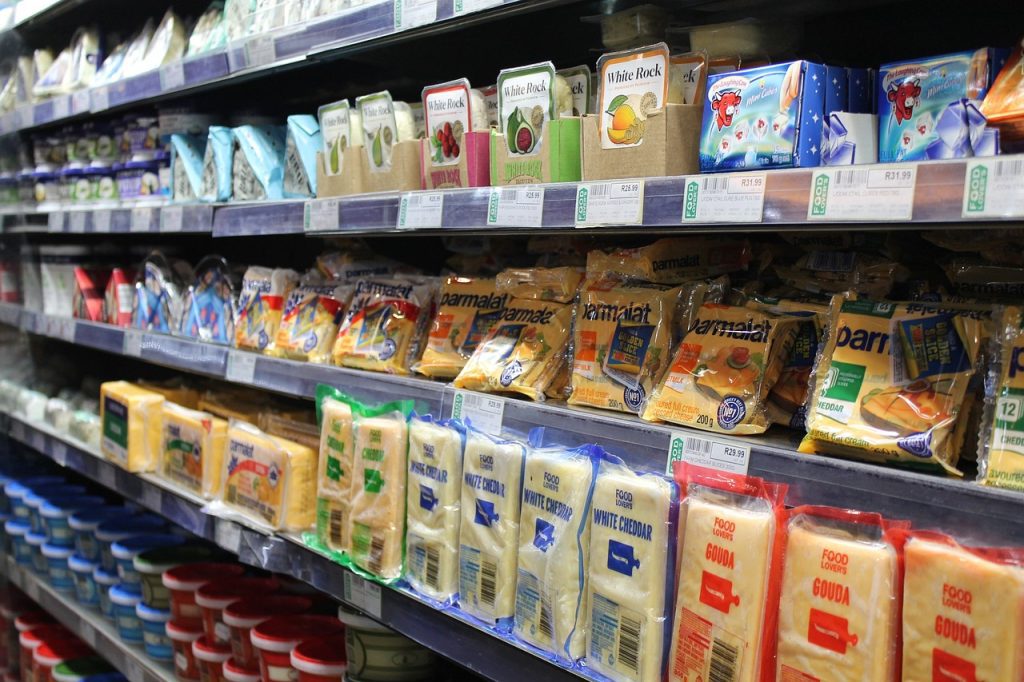Obesity is a complex and growing health problem in the world, affecting millions of people of all ages. It is characterised by excessive body fat, which can lead to a range of health problems, including diabetes, heart disease, and cancer. While there are many factors that cause obesity, the role of sugar and processed foods in contributing to obesity are certainly two of the most significant. The modern diet is filled with sugary drinks, processed snacks, and pre-packaged meals that are high in calories and low in nutrients.
In this blog post, we will explore the role of sugar and processed foods in contributing to obesity. We will examine the impact of sugar on health, the hidden sugars in processed foods, and the addictive nature of sugar. We will also look at the definition of processed foods, how they contribute to obesity, and their role in the food industry. Finally, we will discuss the link between sugar, processed foods, and obesity and the importance of reducing their intake to combat this growing health problem.
Sugar and Obesity

Sugar is one of the most commonly consumed substances in the modern diet. It is found in almost all processed foods, from cookies and candy to sauces and dressings. While sugar can provide a quick burst of energy, excessive consumption of sugar has been linked to a range of health problems, including obesity.
Obesity is a growing problem in the world, affecting millions of people of all ages. It is characterized by excessive body fat, which can lead to a range of health problems, including diabetes, heart disease, and cancer. While there are many factors that contribute to obesity, one of the most significant is sugar.
The Impact of Sugar on Health
Sugar is a type of carbohydrate that provides the body with energy. However, when consumed in excess, sugar can lead to a range of health problems. One of the most significant impacts of sugar on health is weight gain. When we consume sugar, it is quickly absorbed into the bloodstream, causing a spike in blood sugar levels. This spike in blood sugar levels triggers the release of insulin, a hormone that helps the body store excess sugar as fat. Over time, this excess sugar can lead to weight gain and obesity.
How Sugar Causes Weight Gain
Sugar consumption has been linked to weight gain for several reasons. First, sugar is high in calories but low in nutrients. This means that when we consume sugary foods, we are consuming a lot of calories without getting the nutrients that our body needs to function properly. Second, sugar is addictive, which means that we may consume more of it than we need to feel satisfied. Finally, sugar consumption can lead to insulin resistance, a condition in which the body is less able to use insulin effectively, which can lead to weight gain and obesity.
Hidden Sugars in Processed Foods
One of the challenges in reducing sugar consumption is that sugar is hidden in many processed foods. For example, many sauces, dressings, and snacks contain hidden sugars that can contribute to weight gain and obesity. When looking to reduce sugar intake, it is important to read food labels carefully and avoid foods that contain added sugars.
Sugar Addiction
Sugar is highly addictive, which can make it difficult to reduce sugar intake. When we consume sugar, it triggers the release of dopamine, a neurotransmitter that is associated with pleasure and reward. This can create a cycle of sugar consumption and cravings, making it difficult to break free from sugar addiction.
In summary, excessive sugar consumption is a major contributor to the growing problem of obesity. Sugar can lead to weight gain, insulin resistance, and a range of other health problems. To reduce sugar intake, it is important to read food labels carefully, avoid processed foods that contain added sugars, and be mindful of sugar consumption overall. By reducing sugar intake, we can improve our health and reduce the risk of obesity and other health problems.
Processed Foods and Obesity


Processed foods are a staple of the modern diet. They are convenient, cheap, and can be found in almost every grocery store. However, while processed foods may be easy to consume, they are often high in calories, sugar, and unhealthy fats. This can contribute to weight gain and obesity.
What are Processed Foods?
Processed foods are foods that have been altered from their natural state in some way. This can include adding preservatives, flavorings, or other additives. Processed foods can be found in almost every aisle of the grocery store, from snacks and drinks to frozen meals and canned goods.
How Do Processed Foods Contribute to Obesity?
Processed foods can contribute to obesity in several ways. First, many processed foods are high in calories and low in nutrients. This means that when we consume processed foods, we are often consuming a lot of calories without getting the nutrients that our body needs to function properly.
Second, processed foods are often high in sugar and unhealthy fats. This can lead to weight gain and obesity over time. When we consume too much sugar, it is quickly absorbed into the bloodstream, causing a spike in blood sugar levels. This can lead to insulin resistance, a condition in which the body is less able to use insulin effectively, which can contribute to weight gain and obesity.
Finally, processed foods are often highly processed, which can make them difficult to digest. This can lead to inflammation in the body, which has been linked to a range of health problems, including obesity.
The Role of Processed Foods in the Food Industry
Processed foods are a significant part of the food industry. They are cheap to produce and can be sold at a higher profit margin than whole foods. The food industry often relies on processed foods to create new products and increase profits.
The Relationship Between Processed Foods and Other Health Problems
In addition to contributing to obesity, processed foods have been linked to a range of other health problems. These can include heart disease, diabetes, and cancer. While more research is needed to fully understand the relationship between processed foods and these health problems, it is clear that reducing processed food intake can have a positive impact on overall health.
To paraphrase, processed foods are a significant contributor to the growing problem of obesity. They are often high in calories, sugar, and unhealthy fats, and can contribute to weight gain and other health problems. To reduce processed food intake, it is important to choose whole, nutrient-dense foods and read food labels carefully. By reducing processed food intake, we can improve our health and reduce the risk of obesity and other health problems.
The Link Between Sugar, Processed Foods, and Obesity


Sugar and processed foods are two of the most commonly consumed substances in the modern diet. Both are highly prevalent in the food industry and can be found in a wide range of products, from breakfast cereals and snacks to sauces and dressings. However, excessive consumption of these substances has been linked to a range of health problems, including obesity.
How Sugar and Processed Foods Contribute to Obesity
Sugar and processed foods contribute to obesity in several ways. First, they are often high in calories and low in nutrients. This means that when we consume sugar and processed foods, we are consuming a lot of calories without getting the nutrients that our body needs to function properly.
Second, both sugar and processed foods are highly addictive. Sugar consumption triggers the release of dopamine, a neurotransmitter that is associated with pleasure and reward, which can create a cycle of sugar consumption and cravings. Processed foods are often engineered to be highly palatable and can trigger similar addictive responses in the brain.
Third, sugar and processed foods are often highly processed, which can make them difficult to digest. This can lead to inflammation in the body, which has been linked to a range of health problems, including obesity.
The Impact of Sugar and Processed Foods on Overall Health
Excessive consumption of sugar and processed foods can lead to a range of health problems beyond obesity. These can include heart disease, diabetes, and cancer. Sugar consumption has also been linked to tooth decay and other dental problems.
Reducing Sugar and Processed Food Intake
Reducing sugar and processed food intake can be challenging, as both are highly prevalent in the modern diet. However, there are several strategies that can help. One is to choose whole, nutrient-dense foods whenever possible. This can include fresh fruits and vegetables, whole grains, and lean proteins. Another strategy is to read food labels carefully and avoid products that contain added sugars or other unhealthy additives.
To sum up, excessive consumption of sugar and processed foods is a major contributor to the growing problem of obesity. These substances are often high in calories, low in nutrients, and can be addictive. To reduce the risk of obesity and other health problems, it is important to reduce sugar and processed food intake and choose whole, nutrient-dense foods whenever possible. By making these changes, we can improve our health and reduce the risk of a range of health problems.
Wrapping Up the Roles of Sugar and Processed Foods in Contributing to Obesity
In conclusion, the roles of sugar and processed foods in contributing to obesity are significant to the growing problem of excessive weight. Excessive consumption of these substances can lead to weight gain and a range of other health problems, including heart disease, diabetes, and cancer. These substances are often high in calories, low in nutrients, and can be addictive, making it challenging to reduce consumption. However, by choosing whole, nutrient-dense foods whenever possible and reading food labels carefully, we can reduce our intake of sugar and processed foods and improve our overall health. It is important for individuals and the food industry as a whole to recognize the impact of these substances on health and take steps to reduce consumption and promote healthier food choices.
Read More
- Why Fighting Chronic Stress Is Everybody’s Fight
- Alcohol Consumption Damage to the Body, Mind, and Family
- The Benefits of a Healthy Lifestyle
- 4 Common Ankle Injuries and How to Treat Them
- What Are The Benefits of Vaping Over Smoking?
Disclaimer: The information provided on Healthy Lifestyles for All is intended for general educational purposes only and should not be considered as medical advice. Please consult with your GP or other health professional before making any significant changes to your diet, exercise routine, or any other aspect of your lifestyle. We are not responsible for any adverse effects or consequences resulting from the use of the information provided on our blog.
Comments: I hope you enjoyed reading this post as much as I enjoyed writing it. If you liked it, please leave a comment. If you didn’t like it, disagree with something I have written (I’m okay with that), or think I got something wrong (that’s okay too), please leave a comment as well. We only truly learn from our mistakes, so I am happy to have mine pointed out.
Affiliate Links: Please also note that I may make a small amount of money if you buy one of the products I recommend in any of my blog posts. Rest assured that I have done my own due diligence, and only recommend products that have been tried and tested, and have extremely good feedback. Additionally, many of the products I recommend have 30 or 60-day money-back guarantees, so you can buy in the confidence that if a particular product is not right for you, you can get a refund.



